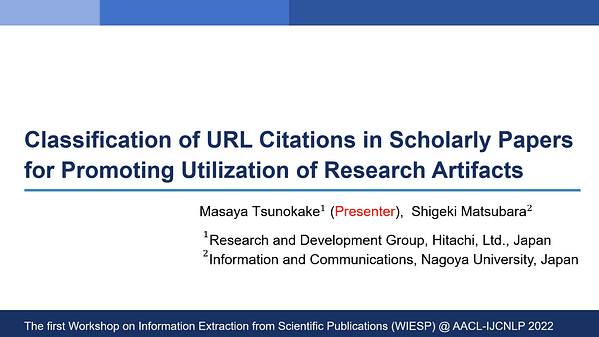Would you like to see your presentation here, made available to a global audience of researchers?
Add your own presentation or have us affordably record your next conference.
keywords:
data sharing and access
reporting guidelines
open science
Objective Transparency and Openness Promotion (TOP)
guidelines were published in 2014, and since then, more than
5000 journals and 80 organizations have become TOP
signatories.1 However, attitudes toward all TOP guideline
recommendations have not been systematically assessed. The
goal of this study was to assess differences in attitudes and
experiences of authors, reviewers, and editors about
conducting and reporting research (TOP guidelines), their
research environment, and perceived prevalence of
responsible and detrimental research practices.
Design A survey was sent in 2018 to 100,000 randomly
selected corresponding authors of articles indexed in Scopus,
with 2 reminder rounds. The survey was designed for this
study and consisted of 38 questions using 5-item rating scales
(eg, from strongly agree to strongly disagree) and 10
(categorical) sociodemographic questions. Responses were
presented as absolute numbers and percentages based on
number of respondents per question. Ordinal regression
analyses were used to explore associations between answers
to questions and sociodemographic characteristics. All
analyses were conducted in Stata, version 13, and P ≤ .001
was considered statistically significant.
Results Study response rate was 4.9% (3659 of 74,749
delivered emails) and included responses from 1389 authors,
1833 reviewers, and 434 editors. Respondents came from 126
countries, had a median age of 44 years (IQR, 35-55 years),
and were most commonly from physical sciences (1034
33%) and life sciences (796 25%). There were no
significant differences between authors, reviewers, and
editors in their attitudes toward TOP guidelines, but some
TOP recommendations (eg, study preregistration) were not
supported. A majority (3462 97%) of respondents (strongly)
agreed that researchers must appropriately cite study data,
methods, and materials; 2675 (74%) that authors must follow
appropriate reporting guidelines; 2174 (60%) that researchers
must share data; 797 (23%) that authors must include the full
data analysis plan in study preregistration; and 751 (21%) that
studies must be preregistered. One fifth of respondents (701
20%) admitted sacrificing the quality of their publications
for quantity, and 492 (14%) reported funders interfering in
their study design or reporting. Undeserved authorship was
perceived by all groups as the most prevalent detrimental
research practice, while fabrication, falsification, plagiarism,
and not citing prior relevant research were seen as more
prevalent by editors than authors or reviewers (Table 38).
Additional findings are available elsewhere.2

Conclusions There were no differences in attitudes between
authors, reviewers, and editors toward specific TOP
recommendations, although some recommendations were not
supported. Respondents’ perceptions of their research
environments and of prevalence of detrimental research
practices indicated that there is still much room for
improvement. Without agreement and involvement of all
stakeholders, it is unlikely that TOP recommendations will
become standard practice. This study is limited by the overall
low response rate, and therefore, the results might not be
generalizable.
References
1. Nosek BA, Alter G, Banks GC, et al. Promoting an open
research culture. Science. 2015;348(6242):1422-1425.
doi:10.1126/science.aab2374
2. Malički M, Aalbersberg IJ, Bouter L, Mulligan A, ter Riet G.
Transparency in conducting and reporting research: a survey
of authors, reviewers, and editors across scholarly disciplines.
Research Square. Preprint posted online January 26, 2022.
doi:10.21203/rs.3.rs-1296644/v1
Conflict of Interest Disclosures Mario Malički is co–Editor
in Chief of Research Integrity and Peer Review. IJsbrand Jan
Aalbersberg is Senior Vice President of Research Integrity at
Elsevier. Lex Bouter is a member of the Peer Review Congress
Advisory Board but was not involved in the review or decision for
this abstract. Adrian Mulligan is a research director for Customer
Insights at Elsevier. No other disclosures were reported.
Funding/Support Elsevier funded the work of Mario Malički in
this study.


